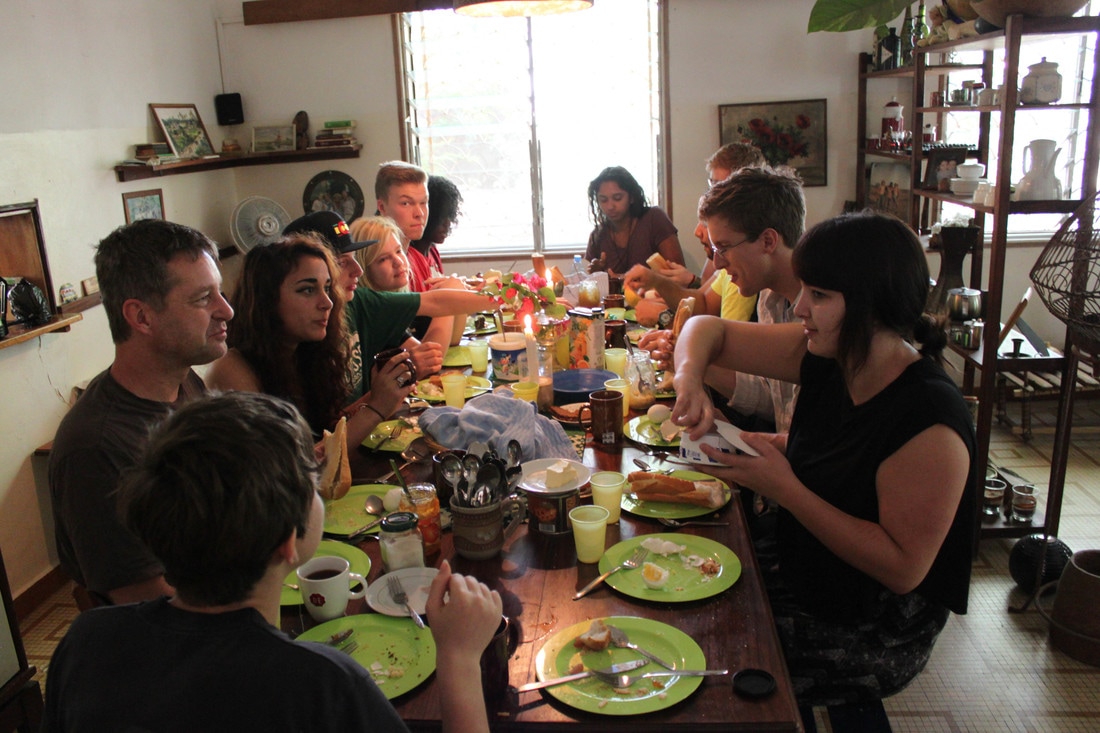|
Africa was everything I had hoped for but nothing I expected. You can study a country for an entire semester, as our class did, and still be completely blown away upon arrival. The very first group of students of the University of Cincinnati’s S-Project (Sustainability Social Entrepreneurship in Senegal) arrived in the city of Dakar, Senegal on December 12, 2013. For the next ten days, we had a whirlwind of experiences that gave us a new outlook on life, as well as the purpose of our project. I will now attempt to express what I took away from the trip into words. Generosity: We had heard that Senegal is the “Land of Hospitality,” but did not understand the extent to which that is true. Our hosts, Dany and Herma Bode, gave up their elbow room around their dinner table and dedicated so much time and effort to housing us and keeping us much more comfortable than we anticipated and deserved. When we visited a village in the town of Djilor, we were fed lunch and dinner, and families gave up their beds so that we would have a place to sleep. Saidu Ba, the director of Aywa International, told us that the people of the village go hungry so that the guests are fed. Whatever we left on our plates would be their meal. Seeing such generosity, hospitality, and kindness from relative strangers really gives you a reality check on the importance we place on material goods. Americans go into countries such as Senegal wanting to make a difference and tell the people that to uplift themselves, they must save their money. We found out that this is an unrealistic and very Western minded concept. Money is not commonly saved in Africa because whenever people have money left over after feeding their family and paying the bills, there are always other family members and people in their community who need help. The Senegalese help each other to survive; they can’t allow themselves to become more successful if the people around them are suffering.
Community: In the village in Djilor, we got to experience the togetherness of a true community. A few of the women sat with big metal tubs and pots and drummed beautiful rhythms as people danced in the Senegalese’s unique way. Hundreds of men, women, and children gathered in a big circle and clapped and cheered each other on as people danced in the center. Everyone knows and loves each other and they come together and have fun after a long, hard day of work. Most of us had never experienced anything like this, except for the occasional awkward block parties at home. Family: Three other students and I were a part of the “Women’s group,” the group going to Senegal with the focus of uplifting the women of the country. Our plan was to interview women to hear their stories and to see how we could best help them in the future. We went in expecting to hear stories of hardship and abuse, but instead found strong, hard-working women, laboring day after day, some well into their old age, to make enough money for their families. They didn’t complain for a second about their lives, but instead gushed over how much they love their families and their community. Instead of finding victims, we found the epitome of strength. This strength was rooted in the love for family, the only truly permanent tie between humans. Needless to say, I appreciate my own family much more now. Now that we have spent time in Senegal and gotten to see life through the eyes of the people we want to help, The S-Project is now more equipped to make a real difference. Above all, we are extremely grateful to all the people that made this trip possible and helped make the experience truly life-changing.
0 Comments
Leave a Reply. |
AYWA InternationalArchives
March 2020
Categories
All
|
Aywa US Headquarters |
Help Us GrowAywa International is a US-registered 501C3 working in Senegal. We bring together a community of global and local players committed to finding and implementing solutions to socio-economic and environmental challenges.
Your tax-deductible donation today will help us expand our facilities and support Senegal's next generation of entrepreneurs. Aywa - Let's Go! |
© 2021 Aywa International


 RSS Feed
RSS Feed